- At the end of March this year there were 10,422 foreign nationals in British jails
Foreign prisoners who make up just 12 per cent of the UK’s prison population could be deported in a bid to solve the overcrowding crisis, the King’s Speech will pledge.
The plan to fast-track removals of foreign criminals to free up around 5,000 places is expected to be outlined in the speech tomorrow.
Other measures could include early removals of criminals before they fully serve their sentences.
Foreign prisoners could be exported to their home countries through transfer deals, and lower level offenders could be expelled from Britain, according to The Telegraph.
Last week The Prison Governors’ Association, which represents 95 per cent of prison governors in England and Wales, warned that jails were due to run out of space within days.
At the end of March this year there were 10,422 foreign nationals in British jails, up from 10,148 the year before. This is about 12 per cent of all prisoners – each costing the taxpayer £47,000.
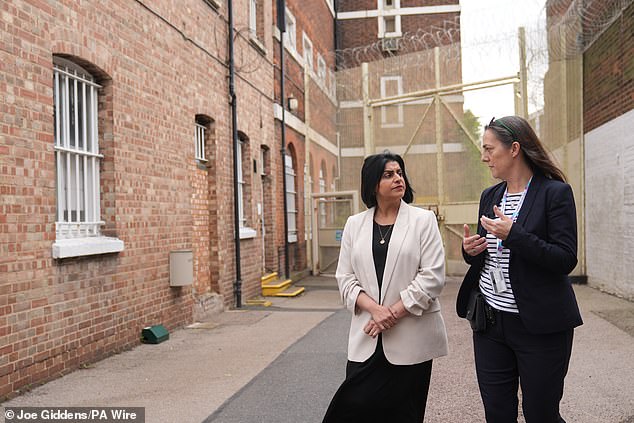
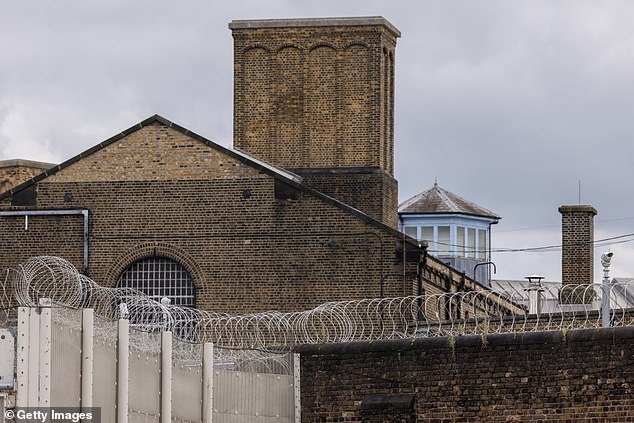

There is increasing scrutiny on the Labour government and how they will deal with the overcrowding crisis after Sir Keir Starmer announced he was ‘shocked’ at the problem, saying it is ‘beyond what I imagined’.
The government has spoken of several possible unsavoury options to tackle the situation, including promising to send fewer people to prison.
Labour was forced to take immediate steps after inheriting the issue from the Conservative government, which blamed overcrowding on the Covid pandemic and delayed court cases.
At the moment, prisoners are automatically released after serving half of their sentence in about 90 per cent of cases.
But Justice Secretary Shabana Mahmood has announced the main measure to tackle the current crisis will reduce this, meaning prisoners will be released after serving 40 per cent of their sentence.
In a speech at Five Wells prison in Wellingborough, she said inaction will lead to a ‘total breakdown of civil law and order’.
Those being released will include violent offenders serving sentences under four years for crimes such as assault, robbery and thieving.
However she clarified there will be exemptions for sexual and serious violent offenders – including terrorists and domestic abusers.
The early release scheme, expected to begin in September, could reduce the prison population by 5,000, which is half the number of foreign criminals.
Seventy-three of the 119 occupied prisons (61 per cent) in England and Wales are operating at overcrowded levels, according to MailOnline’s analysis of Ministry of Justice data for June.
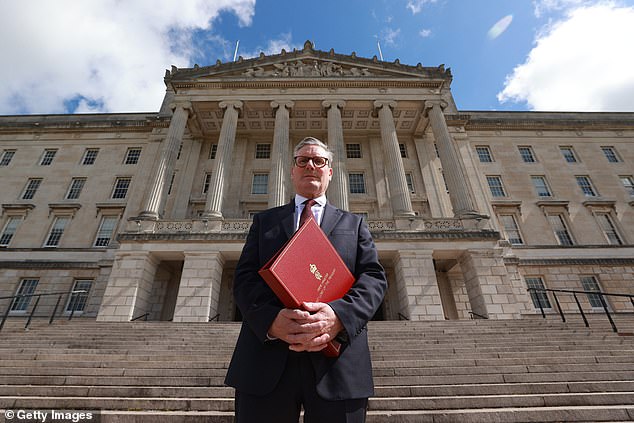
Another 23 operate above 95 per cent, including three Category As – HMP Wakefield (99 per cent), HMP Whitemoor (98 per cent) and HMP Manchester (96 per cent).
Some facilities have been stretched beyond their limits for over a decade, including scandal-hit HMP Wandsworth, the scene of an escape by terror suspect Daniel Khalife last year, as well as a prison guard being caught on video having sex with an inmate last month.
It is believed that the Ministry of Justice are reviewing measures from Alex Chalk, who was the Justice Secretary before Rishi Sunak called the general election and lost to Labour.
In March, the Tory government announced plans to release prisoners two months early in an attempt to ease the problem.
Labour has not yet said what it will do in the longer term, but Sir Keir’s appointment of James Timpson as prisons minister suggests a fresh approach, as he is the boss of the shoe repair chain which has made a point of employing ex-offenders.
This suggests the new government will focus more on rehabilitation than punishment.
Further backing up this point is Sir Keir saying too many people find themselves back in jail quickly after being released.
The former lawyer added in a Downing Street conference: ‘I’ve sat in the back of I don’t know how many criminal courts and watched people processed through the system on an escalator to go into prison.

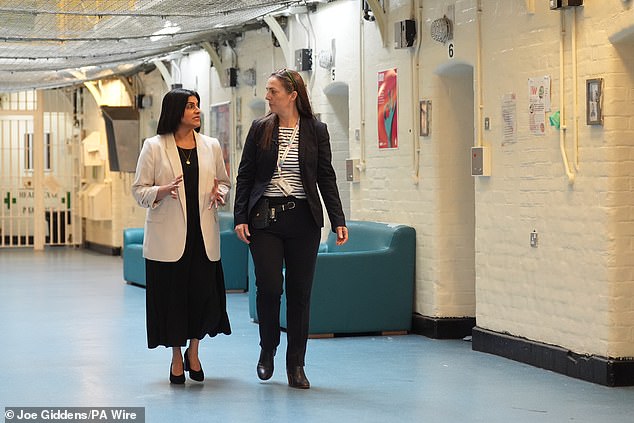
‘I’ve often reflected that many of them could have been taken out of that system earlier if they’d had support’.
Mr Chalk previously introduced an emergency measure where foreign prisoners serve shorter sentences than Brits to try and tackle the problem.
Non-British criminals were freed from UK jails and deported up to 18 months earlier than a British prisoner would be if serving the same sentence.
But the measure has been repeatedly expanded over the last six months.
It was increased to up to 60 days in March and further extended to up to 70 days from May 23.
Over the course of the scheme, over 10,000 offenders were released.
Speaking on Labour’s efforts to stem the overcrowding issue, Shabana Mahmood said: ‘There is now only one way to avert disaster. I do not choose to do this because I want to…. but we are taking every protection that is available to us… let me be clear, this is an emergency measure.
‘This is not a permanent change. I am unapologetic in my belief that criminals must be punished.
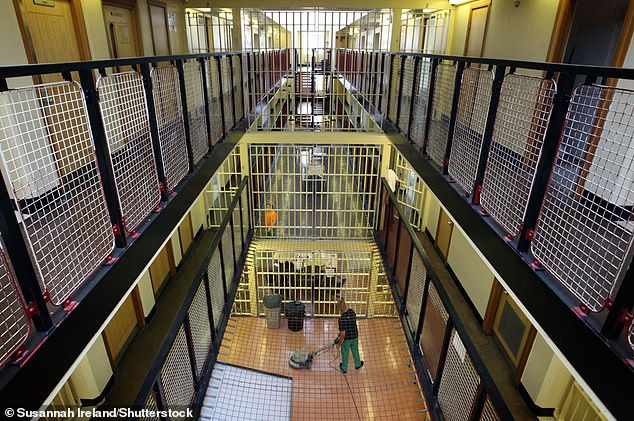

‘The measures I have set out are not a silver bullet but they will give us the time we need to address the prisons crisis, not just today but for years to come.
‘That means continuing the prison building programme. And only by driving down reoffending will we ever find a sustainable solution to the prisons crisis.’
Anyone released will be strictly monitored on licence by the Probation Service through measures which can include electronic tagging and curfews. They face being recalled to prison if they breach their licence conditions.
The new rules will also not apply to most serious offenders, who already either spend two-thirds of their sentence behind bars or have their release determined by the Parole Board.
Labour also says it wants to create 20,000 prison places by enabling ministers to override local councils on planning decisions.
Sir Keir hit out at his predecessor’s government, saying Conservative ministers had created a ‘mess’ by failing to build enough prisons and mismanaging the prisons budget.
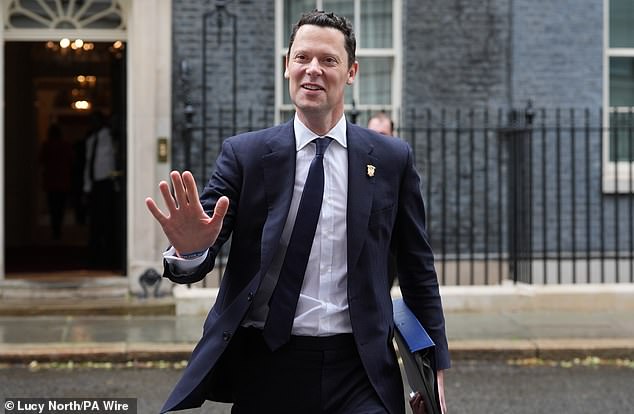
Defending his decision to keep the early-release scheme in place, he said: ‘We don’t have the prisons we need, and I can’t build a prison within 24 hours.’
The latest figures put England and Wales’ prison population at 87,453 out of a ‘useable operational capacity’ of 88,864.
But the Conservatives accused the Government of deploying scare tactics. A senior Tory source said previously: ‘This is shameless scaremongering from the Labour Party that risks causing mass panic.
‘Labour have come into government with hundreds of prison places available – but they’ve lost their nerve, and are now stoking public panic for political gain.’
Mr Chalk said Labour’s plan ‘will buy you 18 months, but it won’t buy you any more’.
Asked if former PM Rishi Sunak had blocked similar measures, Mr Chalk refused to disclose private discussions but added: ‘It is reasonable to say there were a variety of views about what could be got through Parliament.’
Tory MP Neil O’Brien said: ‘The idea that we would be safer if lots of criminals are let out of jail is absolute nonsense.
‘We already know the new prisons minister James Timpson thinks that only one third of prisoners should even be there.
‘Both he and the Prime Minister are fundamentally anti-prison.’
It is understood that senior figures in the criminal justice system fear it could trigger looting, opportunistic crimes and brazen breaches of bail conditions by offenders living in the community.
This post was originally published on this site be sure to check out more of their content.






